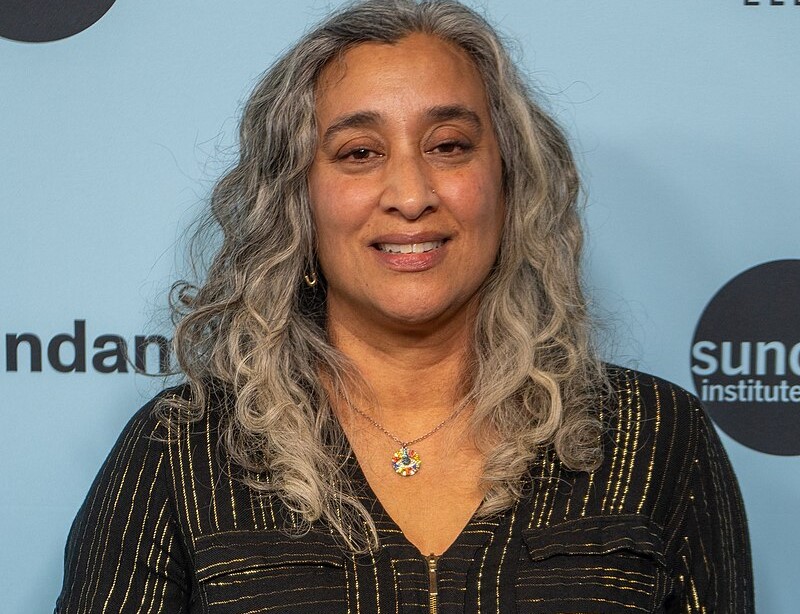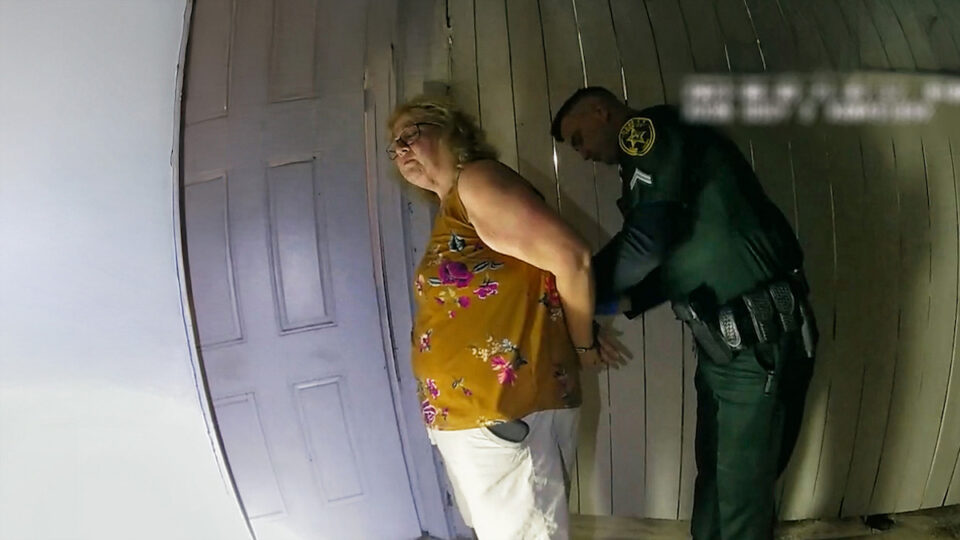BY VEENA RAO*
I clicked on The Perfect Neighbor when it showed up on my Netflix feed, not really sure what to expect. A full 1 hour and 37-minute documentary made entirely from police bodycam and dashcam footage? Honestly, I was skeptical it would hold my attention. But I was wrong — it was gripping from start to finish.
The documentary tells the true story of a neighborhood conflict in Ocala, Florida, between Susan Lorincz, a middle-aged white woman, and the mostly black kids in her neighborhood, and their parents. It starts with Lorincz repeatedly calling the police — at least eight times — on the children, who are playing near her apartment. What begins as small complaints slowly builds into tense situations that end in tragedy when Lorincz shoots and kills Owens, the mother of four little kids.
What makes Perfect Neighbor so powerful is how it uses real footage to tell the story. There’s no commentary, no voiceover, no actors stepping in to fill the gaps, just brilliantly edited police body-cam and dispatch footage woven together to build the narrative.
As a storyteller myself, I was deeply impressed by the layered approach. The documentary effectively dissects the escalating tensions, the fateful night of the shooting, and the aftermath that follows. It also digs into Florida’s controversial “Stand Your Ground” law (passed in 2005) which lets people use deadly force if they believe they’re facing an imminent threat, without a duty to retreat. The film effectively explores how that law works, how it’s interpreted, and how it can be used, and possibly misused.
For a long time after the shooting, Lorincz wasn’t charged or arrested because of this law. That question — whether AJ Owens and her family will get justice — is what drives the heart of the documentary.
The film clearly takes Owens’ side, and so do many of the police officers, who seem frustrated with Lorincz’s repeated calls. Still, it raises important questions. Could this have been prevented? How do fear, bias, and race affect how we see “threat”? And what does justice even mean when the law itself is open to interpretation?
After finishing the documentary, I found myself curious about the filmmaker. The director’s name, Geeta Gandbhir, sounded Indian, so I looked her up — and I’m glad I did. Gandbhir is an award-winning American filmmaker, known for her work as a director, producer, and editor. She’s won several Emmy and Peabody Awards and has built a career telling powerful, socially conscious stories.

According to her Wikipedia page, she grew up in the Boston area, the daughter of Indian immigrants who came to the U.S. in the 1960s. Gandbhir studied visual art at Harvard, where she met Spike Lee and his longtime editor Sam Pollard, who became her mentors. She started her career working with them on narrative films before moving into documentaries.
Her work includes Hungry to Learn, I Am Evidence, and the Spike Lee-produced If God Is Willing and da Creek Don’t Rise, which won a Peabody Award in 2010. She was part of the PBS series Asian Americans (winner of a 2020 Peabody) and directed the Emmy-winning short Apart for HBO’s Through Our Eyes. She directed and produced The Perfect Neighbor, which premiered at the Sundance Film Festival, and Katrina: Come Hell and High Water for Netflix.
Gandbhir’s storytelling style, especially the use of raw footage and the thoughtful look at how laws and prejudice shape outcomes, worked really well for me.
Perfect Neighbor isn’t just a portrait of a neighborhood conflict gone horribly wrong. It is a powerful look at how questions of race, justice, and accountability play out in everyday America.



